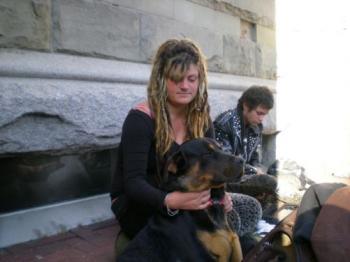One thing led to another and, unable to pay his rent, Ralph became homeless and soon lost his job as well.
It was only after he got help from Project Comeback that Ralph was able to pull himself out of his downward slide and get off the streets that had been his home for almost three months.
Based in Surrey and the only program of its kind in Canada, Project Comeback helps those who are willing and able to work or the working homeless who can’t afford the high rents that are a reality in the Lower Mainland area of British Columbia.
Funded by Service Canada, the program assists people with damage deposits, first month’s rent, work boots — whatever they need to get back on their feet and into housing.
“We see people who are trying very hard to identify work that they can do but of course if you’re not housed it’s very difficult to be rested and prepared to handle a full time job. So it’s a cycle that people get caught in that’s very hard to break out of,” says Marg Yeo, a team leader with Project Comeback.







